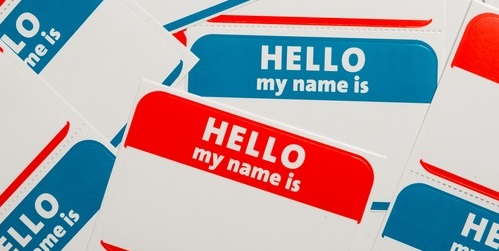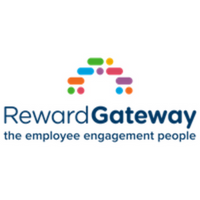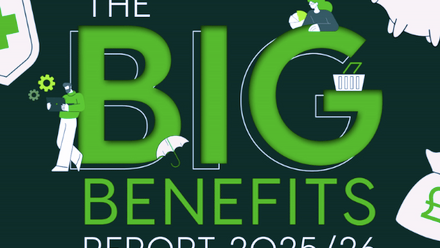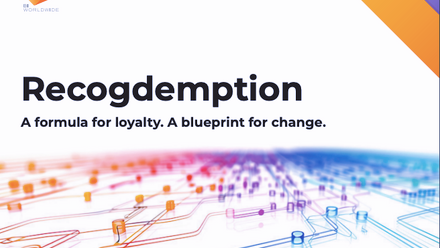4 tips on naming your reward programmes

Sound important? Well it is! To make sure your name has a lasting (and positive) impression, here’s what to keep in mind before choosing one:
1) Make it relevant and meaningful
As rewards professionals we spend a lot of time creating reward programmes that are relevant to our employees, so the concept of relevancy should be quite natural for us. When naming your programme ask yourself, does the name relate back to the programme?
Will employees be able to easily relate it back to what it is and thus how they should feel and what they should do with it? For example, a common name for a recognition programme is ‘Star’.
I’ve personally used the name twice in my career, as it creates an immediate feeling of someone special standing in the limelight winning awards, which is perfect for a recognition programme.
Another example is the name of the new benefit programme we recently launched at Reward Gateway that we call Wellbeing Choice. We named it this because we wanted our employees to easily and immediately understand that this benefit was about giving them a choice regarding their personal wellbeing.
Had we called it Wellbeing Allowance, which we did consider as employees do receive an annual allowance, it wouldn’t create the same meaning, feeling and relevance.
2) Make it stand out
It’s important to make your reward programme name stand out. Why, because you want it to be noticed. We are bombarded with so much information it is absolutely critical to find a way to make your programme stand out, and what better way than through the name?
If you can capture your workforce’s attention from the name, your employees will be pulled into your programme, wanting to find out more.
You can do this by, as mentioned above, making it relevant and meaningful. Other effective ways are to make it easy and memorable - don’t overcomplicate it to be clever, but make it simple to understand for your entire population.
And finally, when appropriate, make it fun and possibly quirky as a way to make it stand out. An example is the name of our online communications portal at Reward Gateway, which is boom!.
It has meaning (creating noise through communication), is easy and is certainly fun and quirky. Careful attention was paid to make it lowercase with some punctuation, which also makes updates stand out a bit more in a flooded email inbox.
Another example is the betting and gambling company Ladbroke’s recognition programme, which they named FanClub.
3) Reflect your company brand, values and culture
Another tip is to create a name which reflects your company brand, values and culture. We do this when designing reward programmes, and it is just as critical when selecting the programme name.
You can do this in a few different ways. One is by using a name which goes along with the type of business or the company name, creating brand alignment and recognition. An example is a water company who named their benefit’s programme Benefits on Tap.
Another example is using My(insert Company Name)(insert Programme Name), i.e. MyRGRewards, as the programme name. For the first example it creates a bit of play on words and for the second, instant recognition (and possibly credibility) by integrating the company name.
4) Think beyond the “now”
A final point to keep in mind when selecting a name for your reward programme is to select one that can ‘stand the test of time’ as the expression goes.
As Cat Wright, implementation team leader at Reward Gateway, said to me “I love names which give you scope to play with now and in the future. For example The Hamper, which is the name of a food company’s online discount platform, not only related back to the benefits programme and had lovely connotations, but it also gave us so much room to grow with the look and feel of the site and communications.
It also sparked great launch events such as picnics, hamper giveaways, etc," she said. This was a name that could be used in many ways over many years.
Another example is from another one of Cat’s clients, Spotlight, who are a casting company. The name for their online discount platform is the Green Room, which was not only relevant to their actor-based clientele, but had great connotations (the exclusive area where actors hangout backstage).
According to Cat “It also allowed us to work with them to go crazy with all sorts of film and TV themed communications with clever movie line based headings.”
So map out your entire communications campaign, both short and long term, and consider the ‘shelf life’ of the names you are considering. If you believe that the name will only have a short-term impact, then consider something which as Cat said, gives you room to grow.
This is critical, as you don’t want to have to change names throughout the life of the programme, as it confuses and/or frustrates your employees.
Naming your programme is a powerful decision that shouldn’t be taken lightly. Getting the name right will mean your programme will grab the attention and actions the programme needs and deserves.
But get it wrong, and it will be ignored or forgotten. Take the time and use my tips to help you get it right, finding that perfect and engaging name.
Debra Corey is group reward director at Reward Gateway.
This article was provided by Reward Gateway.
Supplied by REBA Associate Member, Reward Gateway
We help the world's leading companies with an employee engagement platform.







